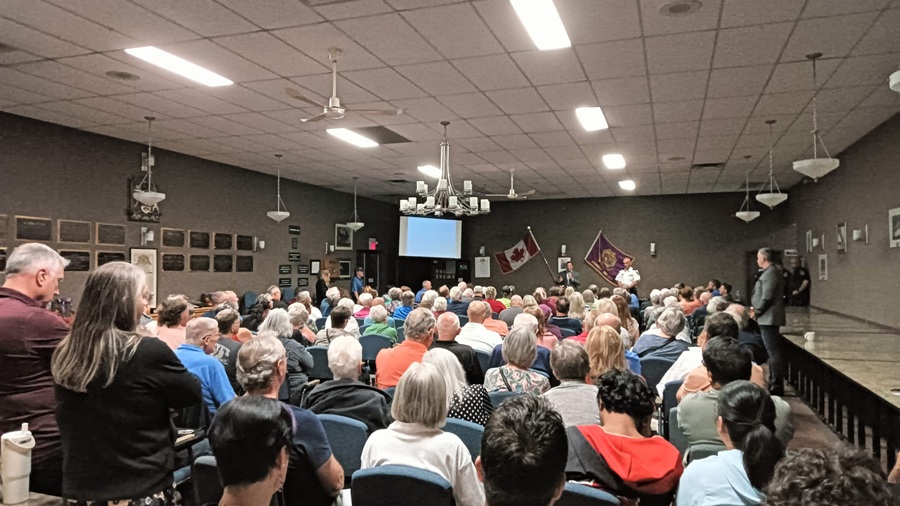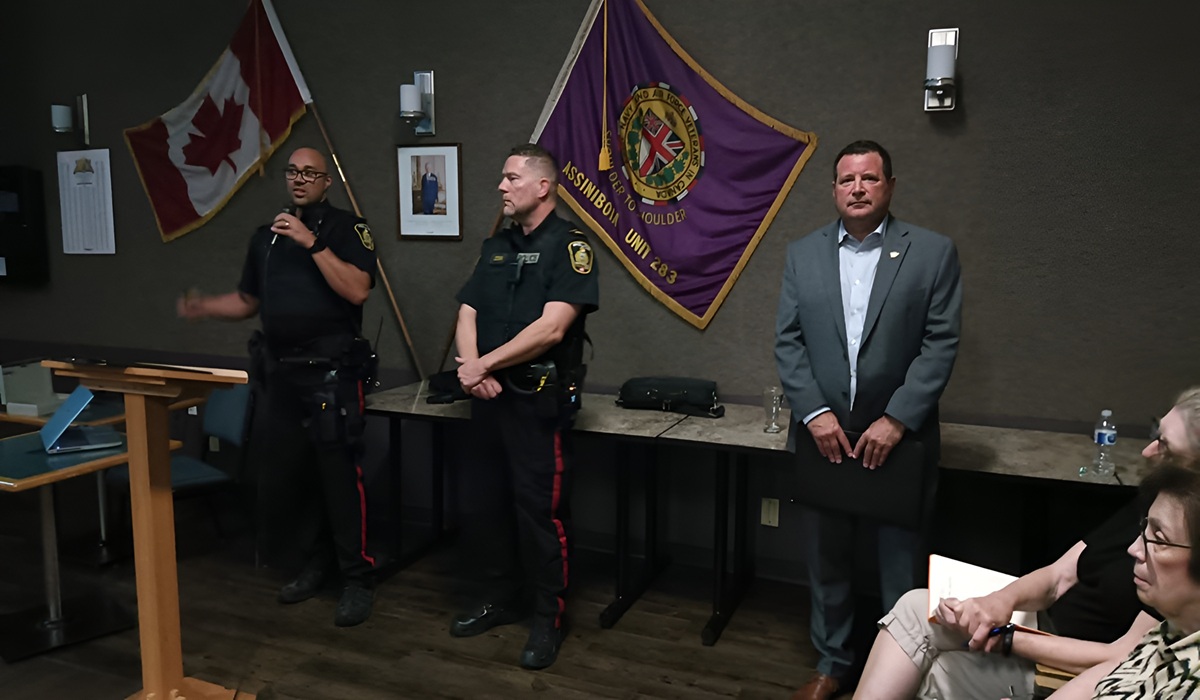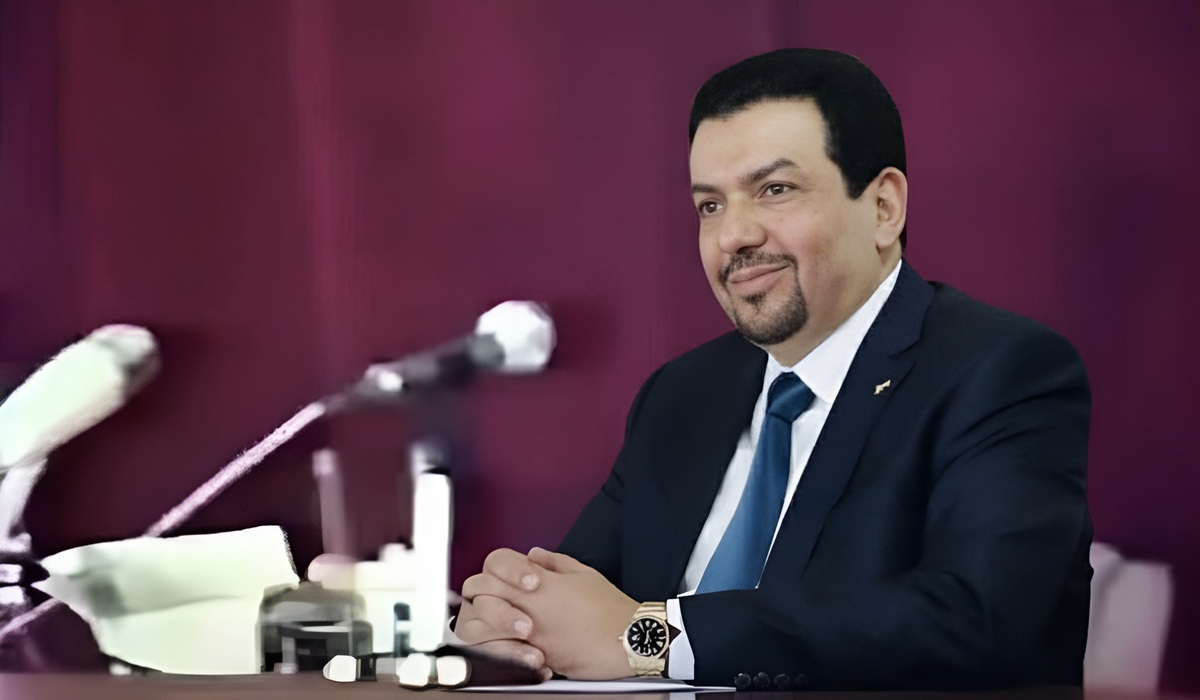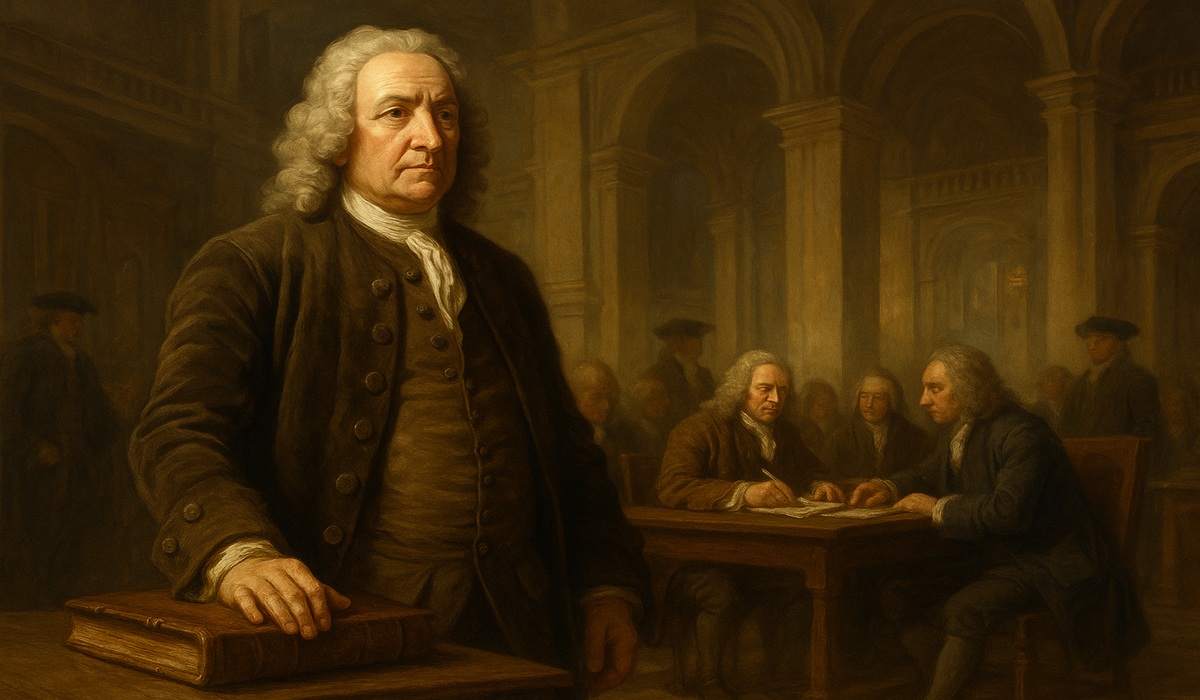Community voices, city leadership, and policing align.
By: Donovan Martin Sr, Editor in Chief
Last night, the Legion hall in West Portage was filled to the brim with residents who came out for a public safety meeting hosted by Councillor Evan Duncan, Chief of Police Gene Bowers, and members of the Winnipeg Police Service. The gathering was proof of just how concerned citizens are with crime in their neighborhood and across the city. People wanted answers, they wanted accountability, and most importantly, they wanted reassurance that something is being done.
Councillor Duncan captured the mood of the room directly. “Well, I think what we’re seeing here is that the community is fed up with the crime that’s out there in Winnipeg, specifically in the west end of the city. It’s out of control. At the end of the day, we need more police on the street to be able to take care of these concerns for people because they don’t feel safe in their community.” His words reflected what many had already been saying quietly for months—now it was out in the open.
Residents shared stories of break-ins on their properties, of being followed or harassed in parking lots, and of a neighborhood that no longer felt safe at night. One especially troubling issue raised came from a Department of Justice employee, who revealed that the provincial government has been dropping released inmates at the Unicity Mall parking lot with little more than a garbage bag of their belongings. Traditionally, reintegration meant transition homes or halfway houses, but this practice has left people stranded while making the public uneasy. For many in the room, this was shocking, and it drew sharp criticism about the government’s role in creating avoidable risks. Citizens were clear—they wanted their councillors to raise this issue with the province and demand a change. The fact that such concerns came forward in a community meeting highlighted why these gatherings are not just symbolic—they uncover what citizens live through daily and what policy makers too often overlook.
Private security providers are seeing the consequences of these anxieties firsthand. Don Woodstock of Jamrock Security spoke about the surge in alarm installations and calls for assistance, noting that Winnipeggers are investing in their own safety at unprecedented levels. He added that social media platforms have become an important tool for neighbors to connect, share alerts, and support one another. His comments underscored that while professional security helps, a united community remains the strongest line of defense.
The spotlight, however, was firmly on Chief of Police Gene Bowers, a decorated officer who has served on the Winnipeg Police Service for over 37 years and who has been Chief for just over six months. Earlier in the day, the WPS had logged 339 calls waiting in the queue—an overwhelming volume that illustrates just how strained the system is. Many of those calls reflect clear social and economic challenges in the city, issues that police are asked to handle alongside both emergency and non-emergency situations. The number was sobering and underscored just how wide the demands on the service truly are.

Bowers spoke about decentralizing the service, moving officers and detectives back into neighborhood stations, and deploying rapid task forces to address disruptive but non-life-threatening issues more quickly. He also noted how much manpower it takes to run even a single patrol car—18 officers are required to keep one unit on the streets at all hours. These insights drew nods and murmurs from the crowd, who seemed to appreciate the transparency and the reminder of how stretched resources really are.
Paraphrasing his words, Bowers emphasized that his goal is a police service that is accessible, connected, and collaborative. He expressed the importance of working with every department, organization, and business in the city to maintain high standards and, above all, ensure the community feels safe. His remarks were less about lofty promises and more about practical, visible change. Already, residents are noticing the difference. Not only is there a stronger police presence downtown and in Osborne, but they are also seeing officers walking the beats more frequently, with marked police cars deliberately parked in highly visible spots as a deterrent. Citizens are also seeing uniformed officers on Winnipeg Transit, with Bowers confirming that undercover officers are riding as well. This is something Don Woodstock had also called for when he ran for mayor in the last election, and as a former transit operator himself, he understands how critical that presence is for restoring confidence in the system. These are the kinds of forward-thinking strategies that reassure residents and demonstrate that change is not just promised—it is happening.
What stood out was the reaction from the crowd. There was an early and overwhelming sense of approval for Bowers’ approach. Residents seemed relieved to hear a Chief not just speaking about statistics or budget lines, but about a vision that put them at the center. His commitment to visibility resonated deeply—people want to see officers walking their streets, not just responding when a crisis erupts. They want to feel that policing is something done with them, not to them, and Bowers appeared to understand that difference. The approval wasn’t just polite applause; it was genuine. Residents spoke afterward about finally feeling that someone in leadership was steering the city in the right direction.
And yet, the evening was not only about policing. The very fact that Duncan hosted this meeting mattered just as much. Winnipeg has long struggled with the perception that city councillors listen more during election cycles than in the quiet stretches between. By standing before his constituents, by inviting the Chief of Police into that space, Duncan showed what representation ought to look like. It wasn’t grandstanding; it was basic accountability. People showed up because they were given the opportunity to speak, and because they sensed the invitation was sincere.
That distinction is critical for Winnipeg’s future. Citizens cannot be expected to have faith in a system where their only relationship with city hall is through headlines or campaign flyers. They need the face-to-face connection, the chance to air grievances and demand answers. Duncan’s leadership in this moment raises an uncomfortable question for other councillors: why are similar town halls not being held across neighborhoods with even higher crime rates? If West Portage deserves this level of engagement, surely the North End, downtown, and other hotspots do as well.
This is where the editorial lesson of last night comes into focus. Winnipeg’s challenges with crime are not unique, but the solutions will require courage and consistency. Chief Bowers is attempting to reset the culture of policing, bringing officers back into neighborhoods and making the service more visible. That shift will not be easy, nor will it be quick, but it has already earned the public’s approval. The role of councillors like Duncan will be to amplify that change, to stand with their communities, and to ensure police are resourced and held accountable in equal measure.
The real measure of last night will not come in press releases or council reports. It will come in whether residents feel safer six months from now. It will come in whether the drop-off practices at Unicity Mall are abandoned in favor of more humane, structured reintegration programs. It will come in whether 339 calls in a day becomes the exception rather than the norm. The night was a beginning, not a conclusion.
Still, something meaningful happened. A councillor stood with his people. A police chief spoke not in the abstract, but in the practical. A decorated veteran of nearly four decades in policing showed that he was willing to adapt and reform. And a community voiced its frustrations and walked away with cautious optimism. For a city that has too often felt defined by crime statistics and political finger-pointing, that was no small achievement.
If this is the model going forward—open meetings, transparent policing, and shared responsibility—then perhaps last night will be remembered not only as an airing of grievances, but as the point where Winnipeg began to reclaim its sense of safety and community.









